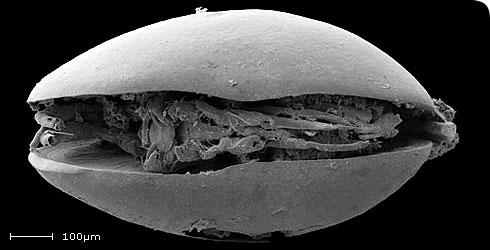Harbinia micropapillosa
Harbinia micropapillosa is an extinct fossil species of ostracod. Ostracods are bivalved crustaceans that inhabit all aquatic environments and some damp terrestrial ones.
This species has been recovered from the Cretaceous of Brazil in rocks that were deposited in freshwater systems.
Generally only the bivalved external shells of ostracods are preserved in the fossil record. However, in Harbinia micropapillosa the internal anatomy is preserved in phosphate in the Cretaceous of Brazil.
The extremely rare and exceptionally well preserved internal structures of Harbinia micropapillosa are almost identical to those of the living species Eucypris virens.
Recent analysis of these internal structure of Harbinia micropapillosa by the ESRF synchrotron in Grenoble France suggests that these Cretaceous ostracods reproduced using giant sperm in the same way as their living relatives.
Species detail
-

Taxonomy
Read about the genus that Harbinia micropapillosa was originally described under and what led to it being classified under the genus Harbinia. Learn about the common characteristics used for classifying ostracods and why it is believed these may be unreliable.
-

Distribution and habitat
Discover where fossils of this species are known from and the type of habitat it lived in.
-

Biology
Learn about the preserved internal anatomy of Harbinia micropapillosa that has been preserved in the Cretaceous of Brazil and what this suggests about ostracods.
-

Conservation
Find out about the protected area in which Harbinia micropapillosa and other fossils are found.
-

References
Get reference material for Harbinia micropapillosa.
Images
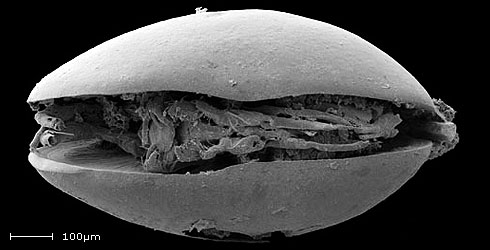
SEM image showing the carapace and external features of the appendages of H. papillosa.
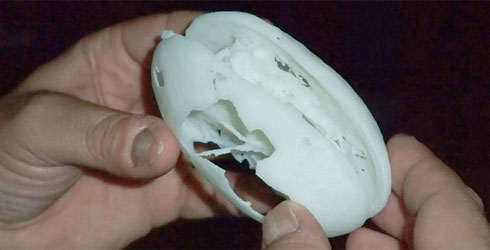
White plastic scale model of Harbinia micropapillosa.
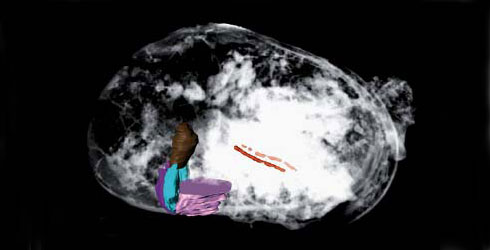
Synchroton image of male H. papillosa including coloured representation of sexual organs.
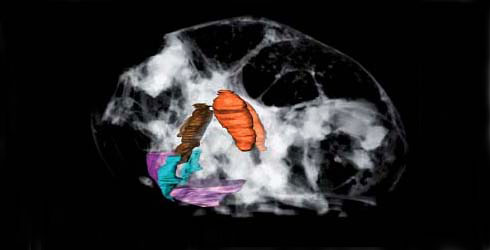
Synchroton image of female H. papillosa including coloured representation of sexual organs.
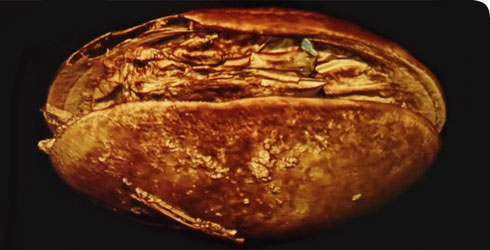
Harbinia micropapillosa
About the author
Dr Giles Miller
Curator of Micropalaeontology, Vertebrates and Micropalaeontology, Department of Palaeontology.
